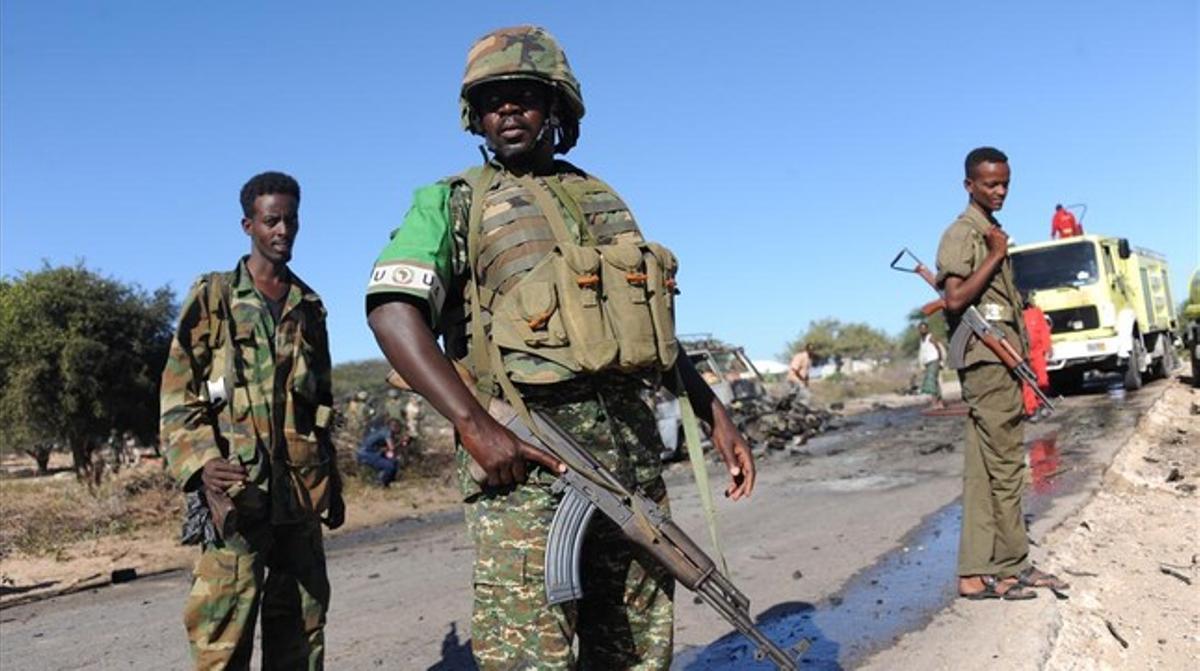The United Nations has renewed the African Union Transition Mission mandate in Somalia (ATMIS) for an additional six months after it successfully completed the first phase of its withdrawal and the transfer of responsibilities to the Somali Army.
In a resolution adopted on June 27, the UN Security Council extended ATMIS’s authorizations until December 31, 2023.
The mission’s mandate includes supporting peace and security in Somalia and assisting the government in countering the Al Shabab jihadist group.
The Security Council also called upon the African Union (AU) to initiate the second withdrawal phase, aiming for a maximum of 14,626 uniformed personnel on the ground from October 1 to December 31.

ATMIS announced that it has already handed over seven military bases previously managed by the AU mission, allowing for the departure of 2,000 soldiers by the end of June.
The most recent bases to be handed over were Aljazeera 1 in Mogadishu, under the control of Kenyan troops, and Gherille in the Gedo region, governed by Ugandan soldiers.
ATMIS replaced the AU mission (AMISOM) in March 2022.
It consists of approximately 20,000 personnel primarily from Uganda, Burundi, Kenya, Djibouti, and Ethiopia, with a focus on combating Al Shabab.
The phased military withdrawal plan, approved by the UN Security Council, outlines an exit strategy by the end of 2024.
Somalia’s President Hassan Sheikh Mohamud declared a “total war” against Al Shabab in August 2022.
Since then, the country’s army, with the support of ATMIS, has conducted extensive offensives against the terrorist group, sometimes collaborating with the United States.
Al Shabab, affiliated with Al Qaeda since 2012, frequently carries out attacks in Mogadishu and other parts of Somalia, seeking to overthrow the internationally-backed central government and establish an ultra-conservative Islamic state.
The jihadist group controls rural areas in central and southern Somalia and also conducts attacks in neighboring countries like Kenya and Ethiopia.
Since the overthrow of dictator Mohamed Siad Barre in 1991, Somalia has experienced ongoing warfare and instability, with Islamist militias and warlords vying for power in the absence of an effective government.

